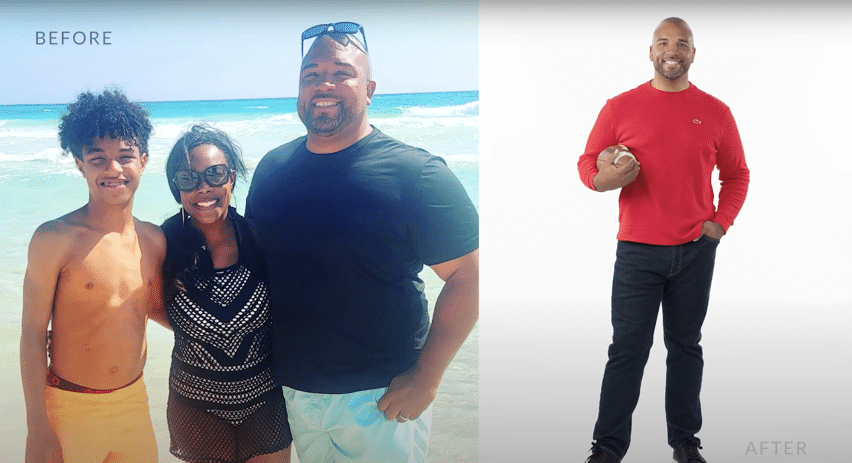Des Williams did not look obese. So some people were shocked to find out the former University of Georgia linebacker developed the telltale symptoms of obesity, including high blood pressure, sleep apnea and chronic fatigue.
Called “comorbidities” they were taking a toll on Des’s life. So even though he carried his weight of almost 330 pounds well – thanks to a former Division I athlete’s frame – Des knew it was time to do something serious about it.
Luckily for him, he knew some other former athletes – including a close friend who faced down his own weight concerns. And after hearing – and seeing – his friend’s success story, Des made an immediate appointment with Dr. Robert Richard at Longstreet Clinic’s Center for Weight Management.
That consultation led Des, now 38 and a Buford resident, to bariatric surgery, and the results have been astounding. Five months removed from a gastric sleeve procedure, also called the vertical sleeve gastrectomy, Des was already down more than 80 pounds. He no longer suffers from elevated A1C levels or sleep apnea, and his energy is reminiscent of his days punishing opposing ball carriers between the hedges in Athens.
“I really didn’t think I’d be this far along this quickly, so I’m super excited about it,” Des said. “Before surgery, my A1C levels were right at pre-diabetic. Now, they’re all normal; all my labs are normal. And my sleep apnea was really off the charts, but it went away really about a month after surgery, so no more snoring, no more CPAP. That was probably one of the biggest wins from a health perspective. And having more energy, having more stamina and having a good physical appearance and outlook has tremendously helped me.”

Des also understands that his weight loss success is also about more than just surgery.
“A lot of people think that when you get bariatric surgery that it’s a magic pill or going to be the end-all, be-all. And Longstreet, Dr. Richard, and everyone we’ve been in contact with does a really good job helping you understand that there’s a lot of work that goes into it,” Des said. “Even after surgery, you still have to work hard, diet and exercise – doing what you need to do to help do what the surgery is supposed to. The tool [surgery] itself is not losing the weight, you’re losing the weight.”
It is a reality that Center for Weight Management reinforces to all its patients, no matter their athletic background or body type.
“I think the key is understanding that you still have to make some lifestyle changes. You can’t eat the same way you did before,” Dr. Richard said. “These operations aren’t going to force anyone to eat that way – they’re going to help patients to learn how to eat a different way and have a different relationship with food. And I think that’s the biggest take home message I’d tell Des or anyone – including prior athletes.”

